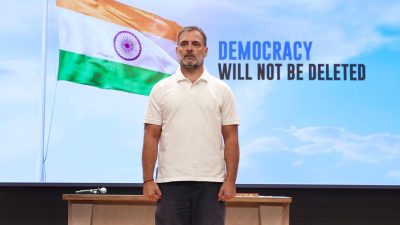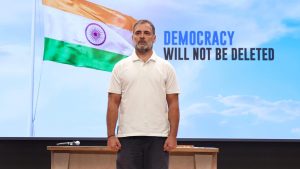Fingerprint fervour leads US into a new whorl
EVERETT, July 18: `I've done nothing wrong,'' Pushp Grover insists, but the government wants more than her word. It wants her fingerprints,...

EVERETT, July 18: `I’ve done nothing wrong,” Pushp Grover insists, but the government wants more than her word. It wants her fingerprints, and those, try as she might, she cannot give.
A native of India who has lived in America since 1970, Grover decided last year to apply for United States citizenship. That meant her fingerprints had to be checked against the Federal Bureau of Investigation (FBI)’s criminal records.
But such a requirement is no simple matter for Grover nor, as it turns out, for millions of other people. Every year, new categories of Americans, from teachers to bank customers to driver’s licence applicants, are being told to lay down their fingers to prove who they are.
Trouble is, not everyone can, and as the United States becomes a fingerprinted nation, Grover’s odd predicament may seem all too commonplace.
Eleven times since may 1996, her smooth, fine-skinned fingers have been inked and rolled onto cards. Eleven times, black smudges have appeared where patterns of arches, loops and whorls ought to be. The government’s form letters soon became as predictable as they were maddening: your prints are unreadable, please submit another set.
Grover, a quiet, gracious woman whose entire criminal record consists of a ten dollar speeding ticket in 1979, says the whole frustrating affair has made her feel like a suspect character.
“I’m not a criminal, by any means,” she says. Law-and-order types say the spread of fingerprinting will create a safer, more secure world through robust identification. Civil libertarians see a dangerous slide toward a police state. Both sides, however, may be giving the craft of collecting and matching fingerprints too much credit.
A closer look reveals it’s not the foolproof, universal means of identification that many assume it to be. As the uses of fingerprinting multiply, so do opportunities for unbending institutions, armed with imperfect technologies, to get befuddled by fingers that don’t fit the mould.
Already, fingerprint fumbles range from high-tech to low: last year in Florida, a pilot programme to collect electronic thumbprints from driver’s licence applicants lasted just three months. When Governor Lawton Chiles unveiled the system, he pressed his thumb on the scanner, and nothing happened.
“More and more mistakes are being brought on by the intensified effort to make sure that no criminal is getting by,” says Joseph Reina, an immigration attorney. Only in the past two decades has the computer power existed to routinely check a set of prints against the millions of criminal prints on file with the FBI.
Banks in 30 US states collect thumbprints from strangers who want to cash checks, and the Food Lion supermarket chain has followed suit. It’s a low-tech application but experts predict that with scanner prices falling rapidly, many banks and stores will start using electronically captured prints.
Most of the time, for most people, such systems will perform as promised. But system designers have yet to find the Holy Grail of 100 per cent accuracy in matching prints or avoiding false matches — and that’s assuming they can capture the print in the first place.





- 01
- 02
- 03
- 04
- 05


























